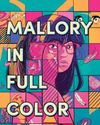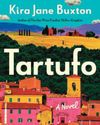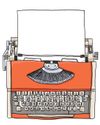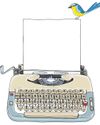
If you're a writer, you've had someone tell you their idea for a story. It's just part of the gig: people thinking that writing fiction is all about the idea, the big twist, the edgy premise. Instead of what writing is really about-the work. They never want to do the work, do they? They tell you their mind-blowing, culture-shifting idea and then demand half the royalties² after you spend the next six years of your life locked in a room writing the damned thing as you slowly transform intoThe Proust a much less wealthy Howard Hughes.
Sure, sure, you need the idea. At some point, your story has to be about something, after all-but it's a big mistake to assume that great stories have to be about big ideas, that there has to be a complex chain of events worked out before you can even put the first word on paper or your screen. Stories can be inspired by the mundane, by the everyday, by simple observations and descriptions.
The classic old situation comedy "Seinfeld" nailed this back in 1992. In the episode "The Pitch," Jerry and his friend George Costanza pitch their idea for a "show about nothing" to a network executive:
GEORGE: What'd you do today?
RUSSELL: I got up and came to work.
GEORGE: There's a show. That's a show.
George wasn't often right on that show, but he's right about this: The inspiration and body of a story can come from anything, from any experience or impression. I
write a lot of stories, and many of them have begun as simple exercises where I write about something that happened (STH). The "something" usually isn't particularly interesting or clever on its own: One recent story came from thinking about an old apartment where I used to live, and another-and I swear I am not making this upwas inspired by a random thought I had about laundry.
Most of the ideas that launched those stories and novels weren't clever or exciting on their face. They were mundane, even kind of boring.
هذه القصة مأخوذة من طبعة January - February 2025 من Writer’s Digest.
ابدأ النسخة التجريبية المجانية من Magzter GOLD لمدة 7 أيام للوصول إلى آلاف القصص المتميزة المنسقة وأكثر من 9,000 مجلة وصحيفة.
بالفعل مشترك ? تسجيل الدخول
هذه القصة مأخوذة من طبعة January - February 2025 من Writer’s Digest.
ابدأ النسخة التجريبية المجانية من Magzter GOLD لمدة 7 أيام للوصول إلى آلاف القصص المتميزة المنسقة وأكثر من 9,000 مجلة وصحيفة.
بالفعل مشترك? تسجيل الدخول

What Is Your Story Question?
Revision and editing advice to take your first draft to the next level.

Writing for the People We Hope to Become
Elisa Stone Leahy's new middle-grade novel, Mallory in Full Color, tackles the in-between moments of adolescence, when who we are and who we want to become collide.

Creating Community
Whether hot off the presses or on the shelves for years, a good book is worth talking about.

Pat Barker
The Booker Prize-winning author of Regeneration shares the role characters play in developing novel ideas and explains what appeals to her about reimagining mythology.

How to Write in Different Genres
Emiko Jean and Yulin Kuang share tips and strategies for how they successfully write in different genres and mediums.

The Shortest Distance Between Two Points
Ten tips for writing a novel with 100-word stories.

Mayfly Marketing
How to sell your novel in a short-attention-span world.

"You'll be a great essay".
How to write six types of personal essays by finding the funny in your life.

The Idea Factory
Tired of staring at an empty screen? Unlock your inner fiction generator with these surprising inspiration techniques.

Seinfeld Was Right: That's a Story
Use mundane moments from everyday life to create stories that pack a punch.